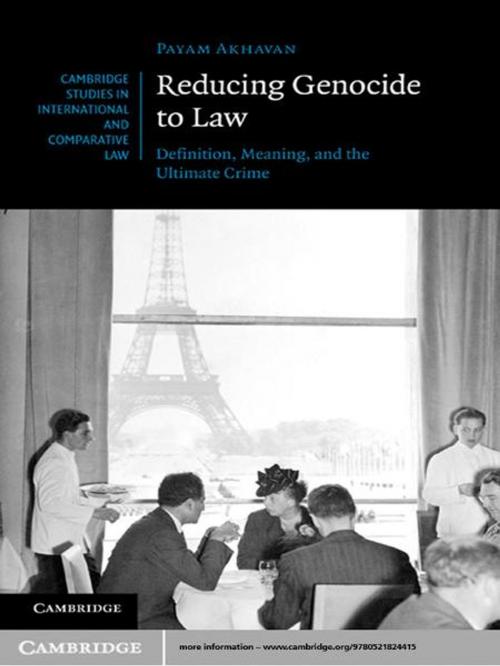Reducing Genocide to Law
Definition, Meaning, and the Ultimate Crime
Nonfiction, Reference & Language, Law, Social & Cultural Studies, Political Science, History| Author: | Payam Akhavan | ISBN: | 9781139209366 |
| Publisher: | Cambridge University Press | Publication: | January 26, 2012 |
| Imprint: | Cambridge University Press | Language: | English |
| Author: | Payam Akhavan |
| ISBN: | 9781139209366 |
| Publisher: | Cambridge University Press |
| Publication: | January 26, 2012 |
| Imprint: | Cambridge University Press |
| Language: | English |
Could the prevailing view that genocide is the ultimate crime be wrong? Is it possible that it is actually on an equal footing with war crimes and crimes against humanity? Is the power of the word genocide derived from something other than jurisprudence? And why should a hierarchical abstraction assume such importance in conferring meaning on suffering and injustice? Could reducing a reality that is beyond reason and words into a fixed category undermine the very progress and justice that such labelling purports to achieve? For some, these questions may border on the international law equivalent of blasphemy. This original and daring book, written by a renowned scholar and practitioner who was the first Legal Advisor to the UN Prosecutor at The Hague, is a probing reflection on empathy and our faith in global justice.
Could the prevailing view that genocide is the ultimate crime be wrong? Is it possible that it is actually on an equal footing with war crimes and crimes against humanity? Is the power of the word genocide derived from something other than jurisprudence? And why should a hierarchical abstraction assume such importance in conferring meaning on suffering and injustice? Could reducing a reality that is beyond reason and words into a fixed category undermine the very progress and justice that such labelling purports to achieve? For some, these questions may border on the international law equivalent of blasphemy. This original and daring book, written by a renowned scholar and practitioner who was the first Legal Advisor to the UN Prosecutor at The Hague, is a probing reflection on empathy and our faith in global justice.















